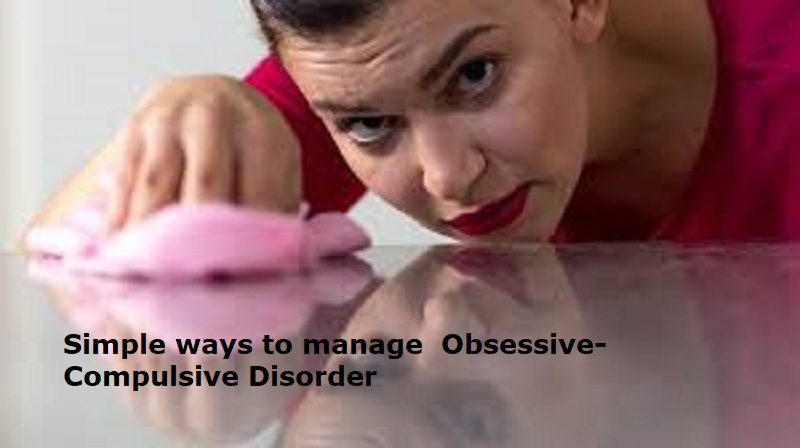
Obsessive-compulsive disorder (OCD) is a mental health condition in which a person may have frequent unwanted thoughts that cause them to perform repetitive behaviors. To get rid of the thoughts, they feel driven to do something repetitively (compulsions). The repetitive behaviors, such as hand washing/cleaning, checking on things, and mental acts like (counting) or other activities, can significantly interfere with a person’s daily activities and social interactions.
Tips to manage OCD:
Establish Routines: Creating structured routines and sticking to them can help manage OCD. Having a predictable routine can also make it easier to challenge and resist OCD-related rituals and compulsions.
Self-Care and Stress Management: Prioritise self-care and stress management strategies to improve overall well-being and reduce OCD symptoms. Engage in activities that promote relaxation, such as mindfulness meditation, deep breathing exercises, physical exercise, and hobbies you enjoy. Take breaks when needed, get sufficient sleep, and maintain a healthy lifestyle with balanced nutrition.
Mindfulness and Meditation: Practicing mindfulness and meditation can help you cultivate awareness of the present moment and reduce anxiety. Mindfulness involves actively observing your thoughts and feelings without judgment, while meditation involves focusing your attention on a specific object or activity.
Deep Breathing Exercises: Deep breathing exercises will calm the nervous system and reduce stress. Practice diaphragmatic breathing by inhaling deeply through your nose, allowing your belly to rise, and exhaling slowly through your mouth.
Also Read: Know how to prevent vaginal dryness
Physical Exercise: Engaging in regular physical exercise, such as walking, jogging, dancing, or yoga, can help reduce stress and improve mood. Exercise releases endorphins, which are natural mood boosters.
Relaxation Techniques: Explore various relaxation techniques, such as progressive muscle relaxation, guided imagery, or aromatherapy, to help relax your body and mind. These techniques can help you unwind, reduce muscle tension, and alleviate stress.
Healthy Lifestyle: Maintain a healthy lifestyle to support overall well-being and reduce stress. This includes getting enough quality sleep, eating a balanced diet, limiting caffeine and alcohol intake, and avoiding tobacco and recreational drugs.

Post Your Comments